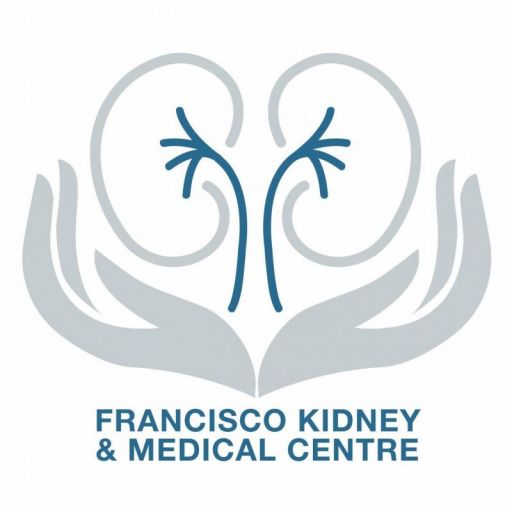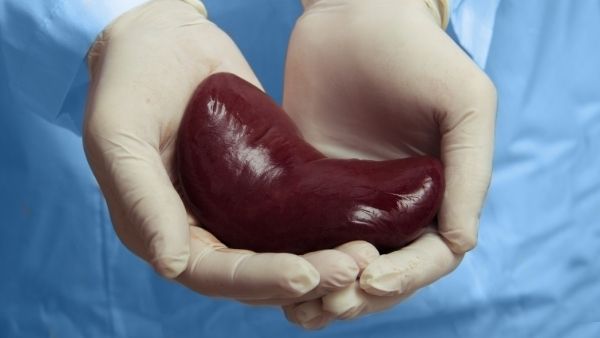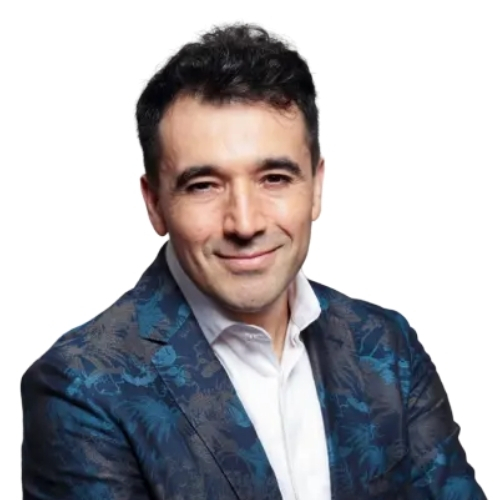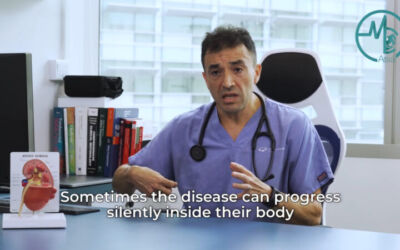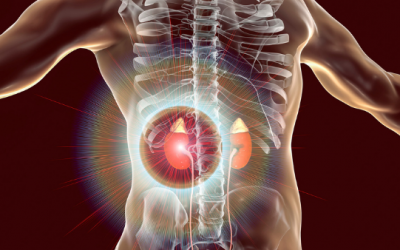Table of Contents
Is kidney transplantation better than dialysis?
Kidney transplantation can prolong and improve the lives of patients with kidney failure.
When compared to dialysis, either peritoneal dialysis or haemodialysis, the outlook of patients choosing a kidney transplant is much better. They tend to live longer.
Kidney transplantation can also give patients a better quality of life. Most patients prefer higher levels of energy because indeed dialysis can be tiring and draining. Patients who have gone through dialysis note that change.
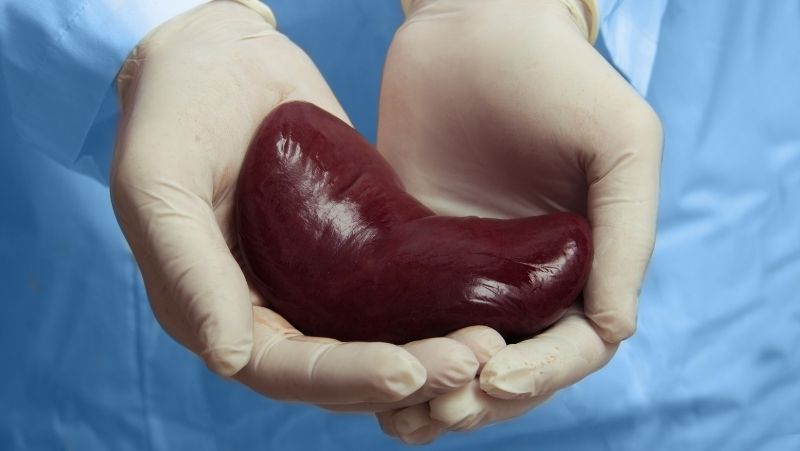
Most patients also comment that kidney transplantation allows them to regain their freedom to do many of the things that they used to do or they used to enjoy before developing kidney failure and needing to go for dialysis.
Thus, kidney transplantation appears to offer patients the best chances for rehabilitation in many aspects of their lives, including the medical aspect, family life, work or student life, social life and any sort of leisure, including freedom for travelling.
Although true they need to take more precautions regarding catching an infection, because they are taking medications called immunosuppressants to prevent the rejection of the transplant.
Patients undergoing a kidney transplant are subjected to fewer dietary and fluid restrictions than dialysis patients, which increases their quality of life significantly. Kidney transplant patients have also greater fertility and many patients become pregnant after transplantation when they tried and failed while on dialysis.
Importantly, kidney transplantation increases the chances of a greater sense of personal fulfilment with a fuller and more harmonious personal, family, and work life. Many patients are able to reinstate their profession or previous work-life after transplantation, which in some cases was severely affected after starting dialysis.
This does not mean that these goals cannot be achieved by dialysis patients, especially when taking good care of themselves. But it is true that the bulk of patients with a kidney transplant tend to do better than the bulk of patients on dialysis.
But true, in both modalities, there are exceptional or extreme cases: I am talking about those patients who lose the transplant on the same day of the surgery or have a major surgical complication or dialysis patients who live for many decades with a very active and productive life.
However, kidney transplantation is not a cure for kidney failure. It is not either going back to the health status before having kidney disease. Kidney transplantation has also some disadvantages and patients do experience some symptoms as side-effects of anti-rejection medications and some complications.
Immunosuppression is well-known for increasing the chances of developing infections, metabolic problems like diabetes or high cholesterol; and even having a heightened risk of developing cancers. This does not happen in most people and in many instances, the cancers can be curable. But true many cancers can grow faster in patients under immunosuppression. So going through routine checkups is advisable.
But again, despite these are significant side-effects to consider, the vast majority of patients undergoing a kidney transplant live longer and fuller lives than if remaining on dialysis. Because dialysis brings by itself many hassles, struggles and medical complications, especially heart-related complications and infections, which together lead to a shortened lifespan and lesser quality of life for most dialysis patients, compared to most kidney transplant patients.
But remember this is more complex than this and the discussions and advice must be individualised to your particular medical situation and preferences.
In Francisco Kidney & Medical Centre, we provide our patients and their families with the rationale, pros and cons of all these therapies, and we weigh their options for them; so they can take the best possible choice. Please contact us if you need our help.
Is kidney transplantation the best option for everyone with kidney failure?
Kidney transplantation can prolong the length of the life of patients with kidney failure, in comparison to patients undergoing dialysis.
Having said that, we mentioned that is true when the outcome of the bulk of patients undergoing a kidney transplant is compared to the outcome of the bulk of patients having dialysis.
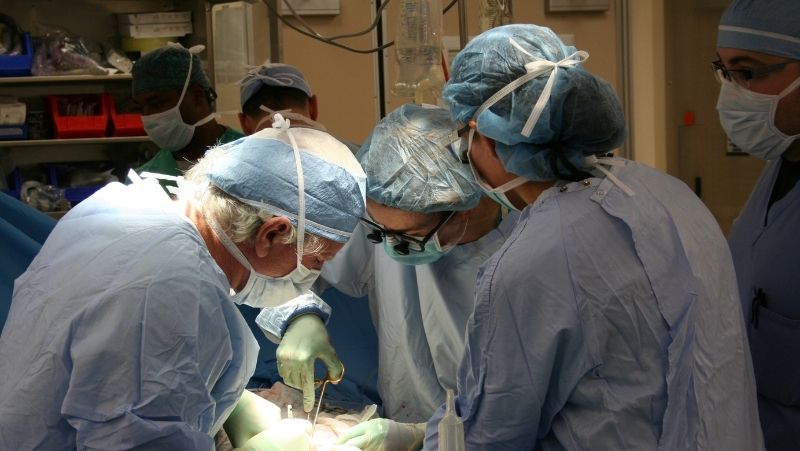
We have previously also commented that kidney transplantation brings along many other advantages over dialysis.
However, we also discussed that every patient is different; that there are always exceptions to those statistics and that decisions must be individualised; especially when I mentioned that transplantation is not free of side effects or risks.
For all that, the short answer to this question is that overall kidney transplantation is better than dialysis and for the ‘standard risk’ patient, but it might not be the best option for all patients with total kidney failure; especially if they are very elderly, frail and fragile or have multiple or significant diseases like heart disease, lung disease or cancers; among many others conditions.
I am mentioning some examples and not being exhaustive as every piece of advice needs individualisation.
First of all, kidney transplantation is a major surgery. So, the patient has to have certain general and cardiopulmonary fitness to go through the surgery safely, with minimal or acceptable risks to minimise complications or risk to his or her life.
We mentioned that one of the common side-effects of the immunosuppressive drugs used in transplantation is a heightened risk for infections; so patients with chronic, active or severe infections might not be good candidates for kidney transplantation; for instance people with active tuberculosis or relentless blood infections like fungi.
Likewise, the use of immunosuppression in patients with active or recent cancer is not ideal; so for these patients, kidney transplantation might not be the ideal option.
Therefore, for many of these patients, transplantation can be in fact an inadequate or riskier option; and in fact, dialysis could be the best option over transplantation… as kidney transplantation can bring along more problems than benefits.
The extreme of this is those very ill or debilitated patients. Their surgical risk can be simply unacceptable, with an even higher risk of perishing during the surgery.
Or patients with short life expectancy like an advanced end-stage disease of other bodily organs or advanced cancers; which can have either a high risk for cancer progression because of the immunosuppression or kidney transplantation will not bring many benefits or will not make a difference over dialysis because their cancer is too advanced; and sometimes dialysis or focusing in comfort measures suffices.
There are many other medical situations for which kidney transplantation might not be an option. As mentioned medical advice needs to be individualised.
And also there are different degrees, for example of heart disease, so patients with mild heart disease might be able to undergo kidney transplantation with no major issues…obviously, after a thorough assessment by a specialist cardiologist.
Some patients might have psychiatric problems or dementia and unable to understand the rationale, pros and cons of kidney transplantation or unable to take care of themselves after transplantation, and many doctors believe, kidney transplantation is not the best option for them.
In addition, many experts believe that patients known not to take their medications or to attach to medical follow-ups are also not good candidates for kidney transplantation as immunosuppression needs to be taken religiously to prevent kidney transplant rejection and eventual loss of the transplant; and frequent check-ups are necessary to ensure patient’s and transplant’s wellbeing.
There could be also social or situational characteristics preventing patients to be candidates for kidney transplantation. They can be financial eg having no insurance or enough finances or subsidies; or even having no donor, no suitable donor (eg not fit medically) or not a willing donor (not keen or afraid to donate -which is fair), etc.
Obviously, when kidney failure is acute and potentially reversible, kidney transplantation is not an option, at least at that junction.
As I also mentioned before, this is more complex than this and the discussions and advice must be individualised to your particular medical situation, preferences and priorities.
And although the content of the article is a little grey – discussing some negative issues or contraindications for kidney transplantation – it is true that kidney transplantation is not the best option for everyone. Having said that, again, most patients are indeed suitable; and overall, kidney transplantation is a better option with greater benefits than dialysis. So, if you have the chance and option, consider kidney transplantation as your first option over dialysis. Especially, if you are young or relatively young, fit, strong, active professionally, socially and or intellectually, a family to provide to or wanting to form a family, and if you have a strong wish to live for as long as and as better as possible.
Please discuss this in more detail with your own doctor or with me if you choose me as your doctor.
In Francisco Kidney & Medical Centre, we provide our patients and their families with the rationale, pros and cons of all these therapies and issues in an individualised manner, and we weigh all the options for them; so they can take the best possible choice taking into account their condition, preferences and priorities in life. Please contact us if you need our help.
What is the best type of kidney transplant? Is it the same if I receive a kidney transplant from a living donor than from a deceased donor?
The short answer is NO. The outlook, in terms of quantity and quality of life, plus the actual length of life of the transplant itself, is better in most patients undergoing a kidney transplant from a living donor than from those receiving a transplant from a deceased donor.
However, kidney transplantation is a very complex field.
What I just mentioned is true for the average standard patient. But many patients with kidney disease defer greatly in their health and medical problems.
Anyway. Let’s go into more details.
There are different types of kidney transplants depending on the types of donors, and the outcomes greatly depend on this as I just mentioned.
Life donation occurs when people who are alive donate one of his or her kidneys to a loved one, a closed one or to someone they do not know, but do it, ideally, altruistically. Family members are commonly living donors or life partners.
One of the reasons for this type of transplant providing more benefits for transplant survival is the fact that the degree of organ and genetic compatibility between the patient and the donor is greater when they are from the same family. And if they are not, doctors have the opportunity to search for a better compatible donor.

This means they have fewer chances for transplant rejection, which in turn means that they might need lower doses of the immunosuppressive medications to prevent the rejection of the transplant, and in turn lower chances to use rescue anti-rejection medications if they were to suffer a rejection episode. These antirejection medications bring up more toxicity and side effects.
Many doctors say that with modern immunosuppression, achieving the best possible immune compatibility is not that important. I don’t fully agree with that.
Yes, modern immunosuppression is powerful and can be tuned up to minimise the risk of rejection or transplant loss; and many episodes of rejection can indeed be treated…but there is always some risk left behind…the immune system has already been primed… But better compatibility will come with less need for higher doses of immunosuppression and fewer chances of using salvage immunosuppression and their accompanied toxicity.
Remember, one of my premises of care is prevention being better than cure, and I prefer to be preemptive over being reactive.
In living donation, also the quality of the donated kidney, that is the quality of the kidney tissue itself, is higher as it comes from a Iiving person, a healthy family member (or a close person).
This means that the kidney transplant has more chances to last for longer than kidneys from deceased donors.
Also, after someone dies and donate his or her kidneys, they need to be left on ice or a solution for a good length of time while finding a compatible recipient in sort of a rush. Organs left on ice or similar preservation solutions for few hours can suffer some decay as well.
In addition, in a living donor kidney transplant, in contrast to a donation from deceased donors, the kidney transplant can be performed promptly without the need to remain for years on a waiting list for a kidney from a deceased donor.
This is very important as during those years on a waiting list, undergoing dialysis, complications can occur, and many of them can lead to a patient’s loss of health and loss of fitness to undergo a major surgery like kidney transplantation in the future.
These benefits can be even greater if kidney transplantation is performed before undergoing dialysis, what is called pre-emptive transplantation, or as soon as possible after starting dialysis; which avoids the side-effects of prolonging the kidney failure status and the side effects of ‘partially effective’ dialytic therapies, as they cannot clean the blood as well as the transplanted kidney, and the body is ‘living; for long periods of time in an environment with higher levels toxins even while being dialysed.
Because dialysis only can clean the blood to the level that patients are definitively alive and as free of symptoms and complications as possible, but the blood is never cleaned to normal or close to normal levels.
Furthermore, this is true because the kidney transplant, as it is a natural, normal, fully functional kidney, provides the patient with all the other important functions the kidneys have, not only cleaning the blood but controlling water and salt levels, production of hormones for bone health or anaemia protection, etc; which no dialysis machine or therapy can do.
Overall, the best potential option for replacement of kidney function is a kidney transplant, and the best potential type of kidney transplant, for patients who can choose between all these options, is a pre-emptive kidney transplant, where the kidney organ comes from a living family member or partner (ideally aged-matched); offering the best potential outcomes, leaving deceased donor transplantation and dialysis as second or third options, respectively.
As commented before, not every patient is, unfortunately, suitable for kidney transplantation.
Also, kidney transplant surgery is bound to heart, surgical and anaesthetic risks as any other major surgery. In addition, patients with kidney failure tend to have several co-existing illnesses and some have many medical complications.
If doctors are worried that the risk for surgery is too high, they might advise against transplantation. For instance, patients having multiple or frequent complications or consequent disabilities, especially if elderly and frail.
Likewise, patients with active or recent cancers or active or serious infections or having other medical contraindications might not be suitable for kidney transplantation. Thus, in some patients dialysis might be safer than kidney transplantation, and the only option. Therefore, all decisions must be individualised.
In Francisco Kidney & Medical Centre, we can assess you in more detail and address more specifically all your queries, as this is a difficult, important and complicated decision. But with the right information and guidance, you can take the best possible decision for your future wellbeing. We provide empathetic, approachable and flexible specialist renal and medical care; because we can imagine the struggles our patients and their relatives could face in these situations. Please contact us if you need our help.
Do costs matter when choosing between dialysis and kidney transplantation?
I’ve mentioned that kidney transplantation provides overall better outcomes than dialysis, and that should be an important factor in the decision of choosing between kidney transplantation and dialysis.
However, there are many other factors to consider, including costs.
Overall, in the long run, kidney transplantation is cheaper than dialysis, though indeed there will be a big bill to pay following the surgery, as it is a very special surgery requiring special care and professional expertise at many levels.
But dialysis is more costly in the long run, not only for your wallet but for your health, too, as it is bound to more complications and shortened lifespan.
Many governments have very kind healthcare subsidies for dialysis that can translate into the patient paying much less for dialysis than for kidney transplantation, but that does not mean dialysis is cheaper or better and, as exposed before, eventually your health, quantity and quality of life can ‘pay’ for that…you can be ‘taxed’ heavily if choosing the apparently ‘economical’ option and later you will end up paying more money to treat complications or having more difficulties to sustain an income; as kidney transplantation provides also the best opportunity for financial rehabilitation than dialysis.
So, dialysis is a bridge before kidney transplantation (while all the workup and procedures are arranged) or a second-best option if transplantation is not possible.
But there are patients who simply prefer dialysis in comparison to transplantation, even if eligible, which is respectable, or patients who have no available or suitable donor to give them a kidney…it is just a matter to accept that reality and taking good care of their health so they can live free of complications for as long as possible while on dialysis.
In my experience, patients on dialysis who decided to follow the medical recommendations, the diet and fluid restrictions and to live a more active and frugal life, tend to live longer and better with fewer complications than patients who choose otherwise. So, even if kidney transplantation is not possible, still patient’s health can be maintained as best as possible but requires a patient commitment to self-care.
Kidney transplantation is a beautiful experience and the costs are a huge investment (investment means good spending of money) in your health and your wellbeing and the well-being of your family.
For me, kidney transplantation is the best method to hold families together for the longest in the fittest and possibly happiest way, in comparison to dialysis because of the bond plus the medical benefits including the chances for longer and healthier life. And that is invaluable.
There are still many other factors to consider in your decisions, and they must be personalised.
In Francisco Kidney & Medical Centre, we can assess you in more detail and address more specifically all your queries, as this is a difficult, important and complicated decision. But with the right information and guidance, you can take the best possible decision for your future wellbeing. Please contact us if you need our help.
Kidney donation keeps us together longer…
Kidney transplantation is a beautiful experience that can prolong and improve the lives of patients with kidney failure, in comparison to their outlook if remaining on dialysis forever.
Kidney transplantation can give patients a better quality of life by allowing them to regain their freedom to do many of the things that they used to do or enjoy before developing kidney failure and needing dialysis.
Indeed, kidney transplantation is not free of potential complications or side-effects of the anti-rejection medications; but despite that, the majority of patients undergoing a kidney transplant live longer and fuller lives than if remaining on dialysis.
Kidney donation is regarded as a gift of health and requires courage and conviction by the donor, and it is an admirable act of love; because kidney donation is not free of complications either…but most donors do well through the rest of their lives.
When discussing kidney donation and transplantation, it is commonly mentioned that donation is a ‘sacrifice’ from the donor to benefit the recipient, so the recipient can do better.
However, it is more than that, and seeing kidney transplantation and donation, especially its benefits, in one-way direction gives patients extra worries, feeling, in many cases, too obliged to the donor and even thinking that proceeding with donation might not be fair to the donor, putting the donor through such risks for their own benefit. Many patients have shared the sentiment of feeling ‘selfish’ because of that or even guilty.
It is my personal opinion that this sentiment has been greatly created by seeing kidney donation as one direct interaction; where the recipient gives everything and the donor receives everything but it is more than that and actually the benefits received are mutual and in both directions.
Kidney donation is a beautiful act, not a transaction and therefore it should not be weighed as to which party gives more or less or has more risks or less.
It is indeed a sort of ‘sacrifice’ (although this word is typically over-emphasised bringing some negative connotation to it), indeed a generous gift of health or love and care (giving away a part of you)…as it is indeed a big thing having your kidney removed, which in an ideal situation is better to keep it. But it is again a way to see things in one direction.
The truth is that not only the recipient benefits from kidney donation but also the donor and the entire family or people close to them.
For instance, a husband donating to his wife will have a wife for longer, who will be then able to take care of his children for longer, to give love and care to the entire family for longer, to contribute to the family chores and finances for longer; and not only longer but also better.
Furthermore, their children will have a complete family for longer, and likely a happier family and less stressed family for longer. Her brothers will have a sister for longer, her parents will have a daughter for longer, her parents-in-law will have a daughter-in-law for longer and a happier son and grandchildren for longer, and so on. Society and the workforce also can have an active and functional member for longer.
The same applies if the donor is the brother or the sister or the mother or the BFF of the recipient.
Thus, from living kidney donation, everyone in the family or close to the recipient, irrespective of who the recipient is and who the donor is, will benefit through a huge act of love from the donor.
That is why I am an active promoter of living kidney donation, wishing the best possible health for my patients and the best possible health and happiness to their families.
On top of this, kidney transplantation through life donation, especially from family members, provides other benefits in comparison to transplantation from deceased donors, as we previously commented, due to many factors including:
– The degree of organ compatibility is greater, therefore fewer chances for rejection and higher chances for more prolonged life of the kidney transplant.
– Since the organ compatibility is greater, fewer chances for needing higher doses of medications to prevent rejection, and less need to use rescue anti-rejection medications, which are more toxic; therefore, fewer chances for side effects.
– The quality of the donated kidney is higher as it comes from a healthy family member, with more chances to function for longer.
– The kidney transplant can be performed promptly without the need to remain for years on a waiting list for a kidney from a deceased donor. During those years on a waiting list, many complications can occur that can lead to a patient’s loss of health and loss of fitness to undergo kidney transplantation in the future or even worse things.
– These benefits can be even greater if kidney transplantation is performed before undergoing dialysis, what is called pre-emptive transplantation, or as soon as possible after starting dialysis; which avoids the side-effects that undergoing kidney failure and partially effective dialytic therapies have.
I can tell you that as I am not only another kidney doctor in Singapore, I am also a transplant physician and a transplant immunologist and researcher, but I am also is also a philanthropic and empathic doctor, who appreciate the struggles and worries when living with kidney failure and simply wishes the best for my patients and you, and transplantation appears to offer you the best chances for rehabilitation and happier family life.
Thus, I will be happy and honoured to offer you more information and advice on kidney transplantation and other kidney-related issues, and assess whether kidney transplantation is suitable and feasible for you, or whether the donation is safe and reasonable for your donor; taking into account immunological (compatibility) and other medical and social aspects, as well as your family dynamics.
If you need my help, you can contact me. However, I need to say, I am not involved in commercial transplantation, that is the purchase or selling of kidneys. I am here promoting live related or altruistic donation, not donation because of economical gain.
Please contact us if you need our help.
Can I practice sports even if I undergoing dialysis or a kidney transplant?
For people who practice sports, sports are an important part of their lifestyle and continue doing it is an important part of their general well-being. One of the aims of undergoing dialysis and transplantation is to allow as much as possible a close to normal life, not just to be alive…you need to live your life. But you might need to take extra precautions and adapt to your new vitality, strength and health.
It certainly depends on the type of sport, its intensity and its competition level. For instance, wrestling, American football or rugby will be difficult if you have a kidney transplant, which can be at risk of injury, or for peritoneal dialysis, as the catheter can be pulled accidentally; of haemodialysis through a chest catheter.
Football (soccer) and basketball will have also risk but less than the sports previously mentioned, but it depends also on how intensive, demanding or competitive you are, and who you play with or against.
If just for leisure, no harm in kicking the ball around with your family and friends, after the surgical wounds, internal and external, have recovered. Ask your surgeon for the best period post-surgery.
Swimming will be difficult if you have a peritoneal dialysis catheter. Some doctors are concerned about transplantation and swimming but many patients do it without a problem. Non-contact sports like badminton or ping pong, or other forms of exercise to keep fit like brisk walking, running or cycling, etc are less risky. But anyway, there are so many sports and exercise types and permutations trying to match them with the different therapies for kidney failure.
On tenet in renal replacement therapy, either through dialysis or kidney transplantation, is to allow you to live your life, as normal as possible. If sports or exercise are important to you, and indeed keeping an active lifestyle, it is beneficial; you just need to do it with some adjustments and ideal under the advice of a doctor or a physiotherapist.
In Francisco Kidney & Medical Centre, we can advise you more specifically and accurately, according to your medical conditions, capabilities, priorities and preferences. Our associate rehab team can actually help you to incorporate exercise or sports in a safer and more practical way, too. Please contact us if you need our help.
